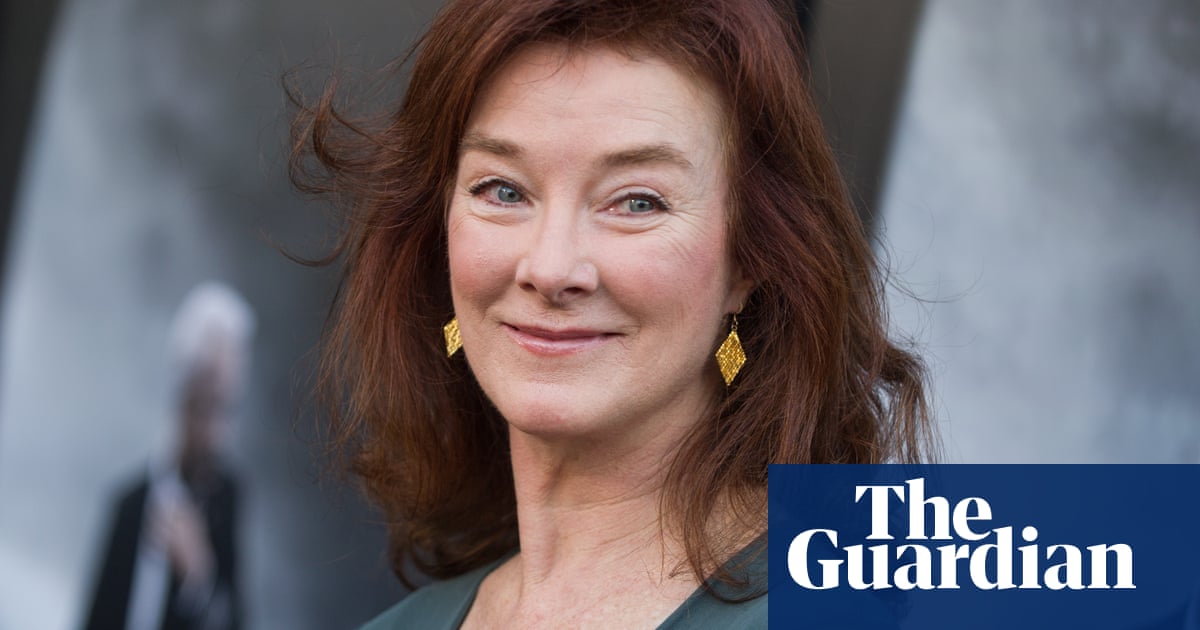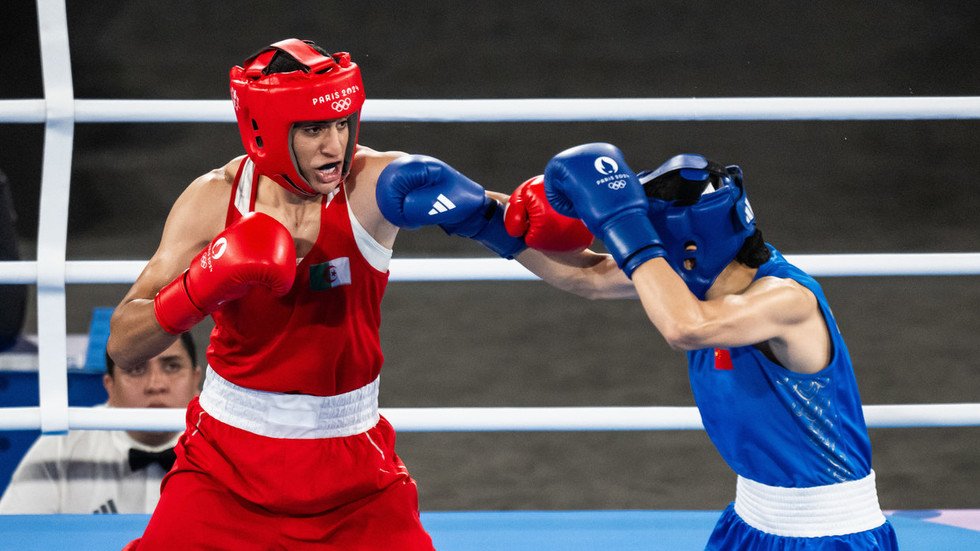Recently Shura decided she wanted to fight. Already in what she calls her Muscle Mummy era – partly inspired by the Kristen Stewart-starring, queer bodybuilding thriller Love Lies Bleeding – this buff new mindset involved the singer, songwriter and producer learning jujitsu for the video for World’s Worst Girlfriend, the soft-pop highlight of this month’s excellently titled third album, I Got Too Sad for My Friends.
Things didn’t go to plan, however. In her fourth class, coming out of a roll, she felt her knee go pop. One MRI scan later, having feared a more serious ligament tear, she was diagnosed with a knee problem known as Hoffa’s fat pad impingement. It means we’re meeting in a cafe/record shop hybrid a few metres from the west London flat she shares with her girlfriend. She reminds me that last time we spoke, around the release of her 2016 major label debut, Nothing’s Real, she couldn’t move her neck. Being a pop artist, it seems, is bad for your health. “I played football [for Manchester City from under 11 to under 16 level], I played loads of sports and I’ve never had a serious injury – until now,” she says.
Things have been emotionally painful, too. I Got Too Sad for My Friends was born out of the upside down of the pandemic, then slowly created after a severe bout of writer’s block, before being delayed by illness. But its title also encapsulates an aspect of Shura’s personality. “There’s a little sense of humour to it but, at the same time, if you examine it, it may be slightly devastating,” the 36-year-old smiles. “Devastating in a fun way.”
The seeds of I Got Too Sad for My Friends’s creation started with its predecessor, Forevher, an album exploring queer love over airy 70s grooves that Shura feels didn’t get the shot it deserved. After its release in August 2019, its accompanying tour was cut short by Covid. At that time, Shura – real name Aleksandra Denton – was living in New York and too scared to leave the US in case she wasn’t allowed back in. She started to “pre-grieve” her parents back in London, specifically her mum, who is the subject of the new album’s emotional centrepiece, Online. “Worrying is my hobby,” Shura says, chewing some Nicorette gum (she’s been trying to give up vaping, which she started when she was giving up cigarettes). “I joke that if there’s something to worry about I’ll worry about it.”
She searched hard for joy. When her musician friends started organising virtual concerts she figured she’d join in. She wanted to make it work, too, even rearranging the plants in her apartment for “vibes … but there were no vibes”. In the end, she gave up: “I was basically performing to a fucking fig tree.” Later, she’d find a better use of the internet as a streamer on gaming platform Twitch, lost in “the horniest game I’ve ever played in my life”, Baldur’s Gate 3 (“You can pick your character’s genitalia,” she says. “There’s three different penis options.”)
It wasn’t just live music that was making her sad; suddenly all music was off the table. Performance was her job and every song was a reminder of what she was losing. Having previously been dropped by Polydor after Nothing’s Real failed to meet its commercial expectations, she also started taking on the weight of an industry in turmoil. “Also I just couldn’t write,” she says. “I had nothing to say. I would be talking to my partner going: ‘Maybe that’s all I will ever offer to the world.’ I think if that had been it, it would have been really sad because it was like I had one and a half goes.”
Shortly after releasing a deluxe version of Forevher in early 2021, and moving back to London, she was dropped again, this time by the indie label Secretly Canadian. Shura says she hadn’t been surprised at being dropped by Polydor, who signed her at the peak of music-blog influence, after her tactile, SoundCloud-only 2014 debut single Touch went viral. Having taught herself production via YouTube tutorials while working as a video editor, she found the major label ecosystem alienating and intimidating, and she was clearly an odd fit. When she was being touted around various labels, she remembers one asking her what her “thing” was. “They said: ‘Clean Bandit play classical instruments, so is your thing like: Hi, I’m in a beanie.’” She looks agog, pulling at her – you guessed it – beanie. In the end, after signing to Polydor, she decided her thing was being “stressed out”.
The second, most recent, label departure – this time from an indie – stung, however. “I talk to my musician friends now and I’m like: ‘Look, if you’re dropped, come to me,’” she laughs. “That’s my expectation: someone gives me some money to make a record and then they’re like: ‘Oh that was a bad idea.’” She pauses. “But it was actually quite painful. Like, ‘By the way, I know it’s a bit of a pandemic and you have no income but, you know, bye.’”
Shura’s ability to find solace in tricky times extends to the album’s sonic palette. While lyrically the album is saturated with the pandemic’s sense of uncanny – the single Richardson is about Shura taking laps round her small apartment “to feel the air on my face”, while other songs touch on loneliness, panic and dislocation – musically it feels like a warm hug. Recorded live with a small band, it leans into 60s Americana, all honeyed harmonies, rich organ and the gentle pitter-patter of drums. “Writing-wise,” she says, “I met myself where I was listening-wise.”
It was the tactile songs of US singer-songwriter Cassandra Jenkins that helped Shura fall back in love with music. “It was the perfect record for that time,” she says of Jenkins’s intimate An Overview on Phenomenal Nature album. “I could curl up into it and it just comforted me.” Jenkins adds backing vocals to Richardson, and even makes a cameo in our interview when one of her songs gently wafts out of the cafe’s speakers. The perpetually fidgety Shura suddenly sits bolt upright. “Fuck off! She’s here. Cassandra, that’s so nice of you to turn up. Hi.”
after newsletter promotion
Shura jokes that with each album she’s slowly moving back a decade. “So Nothing’s Real is 80s, Forevher was slightly more 70s, and this is a bit more 60s,” she says. “My next one will be Gregorian chanting, so I can keep my armour for that one as well.” Ah yes, the armour. The artwork for I Got Too Sad for My Friends finds Shura sitting on a rock in the Bannau Brycheiniog (Brecon Beacons), sporting armour over her everyday clothes and looking for a battle that never comes.
It was semi-inspired by Baz Luhrmann’s Romeo + Juliet and how “a lot of lesbians of a certain age” either fancy its star Leonardo DiCaprio or “want to be him, or want to be a woman that looks like him”. The armour has a much bigger significance, too. “[During the pandemic] I found that I was doing stuff that I thought was protecting me from pain or sadness, that absolutely made things worse; by retreating, by reaching out to my friends less and isolating myself further. So here I am in armour, ready to fight, but what is my armour protecting?”
As she starts to grow more animated, those gym-toned arms reveal a delicate sword tattoo in honour of the new record. She gets one for each album, she explains, which confuses me after I spot a drawing of a jolly, round character. “Oh, that’s just a happy potato,” she laughs. When I suggest she’s just let slip the title of album four, she smiles, and allows herself to look to a future she thought was gone: “It’s that or Hoffa’s fat pad impingement.”
I Got Too Sad for My Friends is out now.
Source link















